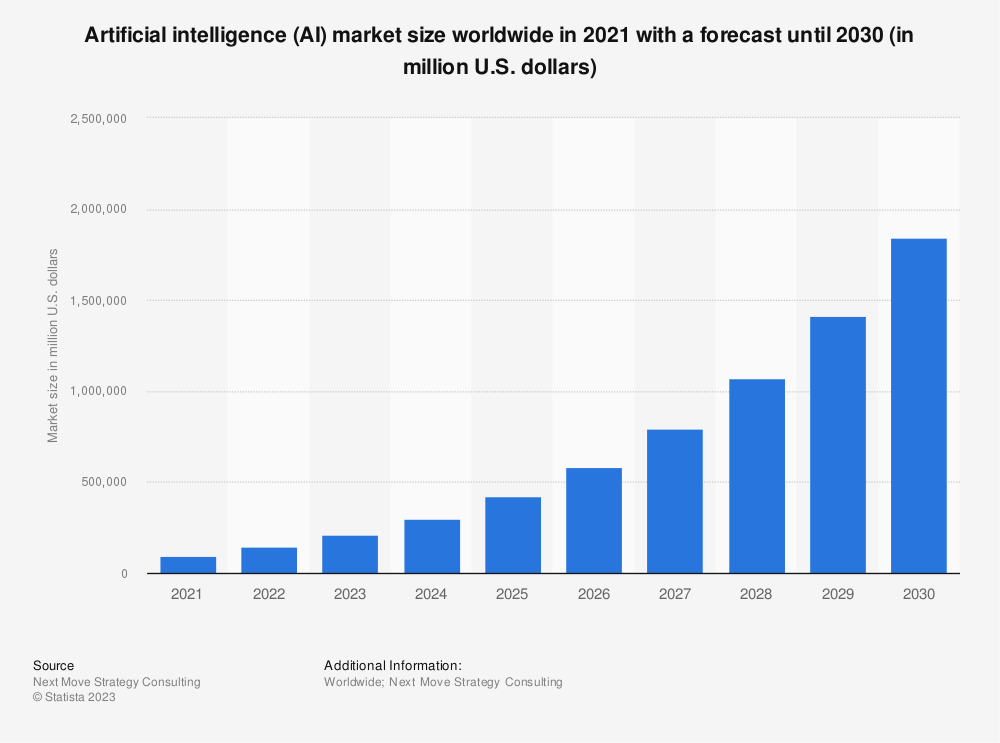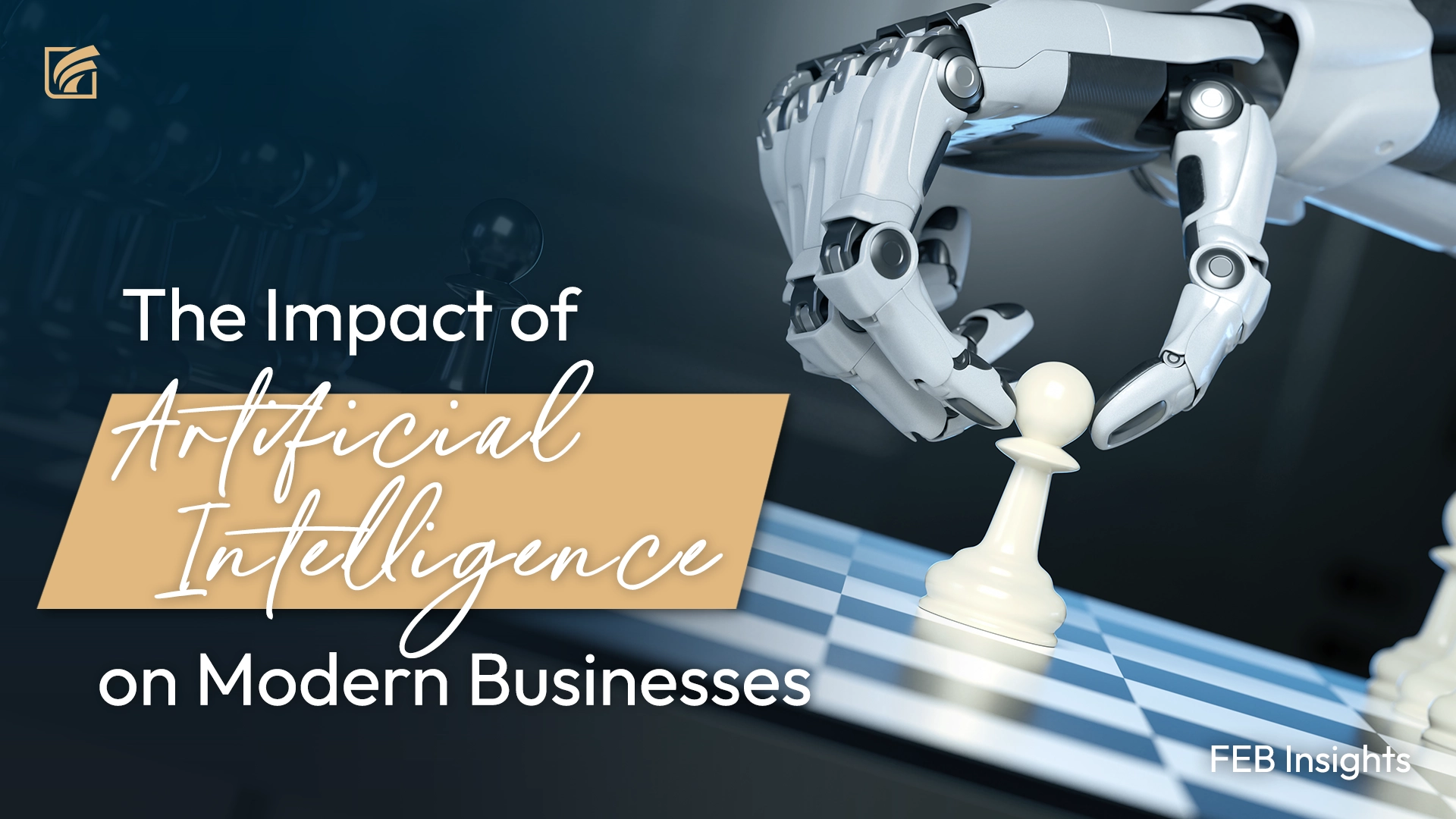In the rapidly evolving landscape of modern business, the influence of Artificial Intelligence (AI) has grown significantly, presenting opportunities to revolutionize operations, enhance efficiency, and elevate customer experiences. This article navigates through the expanding domain of AI, illuminating its versatile applications and offering insights to businesses poised to embrace AI solutions for strategic advancement.
AI’s Expanding Footprint
The adoption of AI technologies is not just a futuristic concept but a practical reality for businesses across sectors. According to the EY CEO Outlook Pulse survey conducted in July 2023, 88% of CEOs are incorporating AI into their capital allocation strategies, with 43% actively investing in AI technology. Additionally, 45% of CEOs are planning significant AI investments in the next year. The influence of AI goes beyond internal operations, as evidenced by the survey’s finding that 71% of CEOs are harnessing AI to augment their merger and acquisition strategies, solidifying its role in driving business expansion endeavors.

Image generated from text via imagine.art
While the potential benefits of AI are evident to CEOs, there remains a sense of caution rooted in the recognition of uncharted challenges. The survey underscores that while 65% of CEOs view AI as a force for good, an equally substantial portion acknowledges the necessity for further efforts to address multifaceted concerns, ranging from social and ethical considerations to security risks.
In light of these findings, it is apparent that the appeal of AI stems from its capacity to enhance processes, reduce costs, and respond adeptly to shifting market dynamics.
The accessibility of advanced AI tools, provided by notable companies such as NVIDIA, Microsoft, and Google DeepMind, further contributes to the widespread adoption of this transformative technology.
Here is an instance of AI at work in interior design and conceptualization, utilizing platforms such as imagine.art and promeAI:

Market Growth and Emerging Trends
According to Next Move Strategy Consulting, the market for artificial intelligence (AI) is poised for remarkable growth in the coming decade. Its current value of nearly 100 billion U.S. dollars is projected to experience a twentyfold increase by 2030, reaching nearly two trillion U.S. dollars. This astounding growth is indicative of the transformative potential that AI holds for businesses across various sectors.

The AI market encapsulates a diverse range of industries, encompassing supply chains, marketing, product development, research, analysis, and more. These industries are primed to integrate artificial intelligence into their operational structures to gain a competitive edge. Prominent trends including chatbots, image-generating AI, and mobile applications are poised to reshape the landscape, propelling advancements in AI capabilities.
The Essence of AI: Enhancing Customer Experiences
Customer-centricity remains at the heart of business success, and AI has emerged as a potent tool to bolster this aspect. By analyzing substantial customer data, AI algorithms decipher patterns and preferences, enabling businesses to tailor marketing campaigns, predict behavior, and personalize offerings. Amazon’s Alexa and similar virtual assistants are examples of AI enhancing customer engagement by enabling interactive experiences.
Operational Excellence Through Automation
Operational efficiency is a cornerstone of success, and AI’s potential to automate tasks and workflows is reshaping the landscape. From data entry to cognitive tasks like report summarization, AI’s automation prowess reduces manual effort, allowing human resources to focus on strategic endeavors. This transformative shift not only streamlines processes but also optimizes resource allocation.
Decision Intelligence: From Data to Insights
In an era driven by data, AI’s analytical capabilities emerge as a vital asset for informed decision-making. By sifting through vast datasets, AI algorithms unveil trends and insights that guide business strategies. These insights can predict market shifts, enabling businesses to respond swiftly to changes with agility and accuracy.
Balancing Innovation and Implementation Challenges
As businesses embrace AI’s potential, it’s imperative to tread cautiously, recognizing both its capabilities and limitations. The rise of generative AI and large language models has generated excitement, but as with any technological advancement, there are risks. The effectiveness of AI rests heavily on the bedrock of quality data, and the prevalence of “technological solutionism” necessitates a clear strategy aligned with business values and goals.
Crafting an AI Strategy: Navigating Challenges
Crafting a comprehensive AI strategy is paramount for successful implementation and sustainable growth. This strategy should encompass a prioritized roadmap, outlining AI initiatives with quantifiable ROI and impact. While the allure of AI’s potential is compelling, organizations must avoid the temptation to adopt a multitude of tools without a cohesive vision. Implementing AI requires a clear understanding of data quality and specific use cases to derive meaningful insights and business value.
Effective Approaches for Implementation
Businesses aiming to harness AI’s potential can benefit from adopting effective implementation strategies:

Image generated from text via imagine.art
Precise Objective Establishment: Clearly identifying the challenges that AI can address and defining clear objectives is fundamental to avoiding misalignment and ensuring tangible outcomes.
Strategic AI Roadmap: A well-structured strategy that prioritizes initiatives aligned with business value facilitates focused development and maximizes return on investment.
Data Optimization: The quality of data is paramount for AI success. Ensuring data accuracy and relevance is essential to prevent biases and incomplete results.
Change Management: Implementing AI necessitates a thoughtful approach to change management. Transparently communicating AI’s purpose, benefits, and impacts to employees fosters a culture of adaptability and learning.
Nurturing Innovation: AI’s potential to relieve employees from routine tasks can stimulate innovation. Encouraging experimentation and continuous learning creates an environment conducive to growth.
Empowering the Workforce: Providing training and tools to facilitate AI adoption empowers employees. Upskilling contributes to job satisfaction and boosts productivity.
Ethics and Transparency: Addressing ethical considerations and data privacy builds trust with customers and employees. Ensuring transparency in AI solutions is essential.

The global AI market is projected to soar over the coming decade, driven by innovations and applications across diverse industries. The journey to harness AI’s potential is marked by both opportunities and challenges, necessitating a strategic and mindful approach. Business leaders must foster a culture of curiosity, learning, and adaptability, facilitating the seamless integration of AI technologies into existing operations.
In conclusion, as AI continues to shape the modern business landscape, success demands a balanced fusion of innovation and prudence. By embracing AI with strategic intent, businesses can bolster their competitive edge, stimulate innovation, and open novel avenues for growth in the ever-changing global marketplace.
Is your business ready to explore new opportunities? Embrace AI-driven intelligent automation to reshape your operations for growth. Let’s connect and discuss how AI can help propel your business forward!






